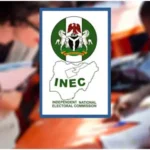Is Nigeria, as a country ready for renewable energy?
Yes, Nigeria is not only prepared, Nigeria is the biggest market in not only Africa but in the developing world. Nigeria is seen as the best destination for investment in clean and renewable energy, the reason being that because of our energy deficiency as well as energy poverty in Nigeria, the reason renewable energy is attractive to investors is because over 60 percent of Nigerian are off-grid and do not have access to electricity, not just electricity, we are talking about renewable energy for lighting, cooking, transport and heating. Nigeria is the biggest and best destination for investment. In my view, government does not have to bring in money into renewable energy; it is renewable energy that will bring in money for government.
Do we have necessary policies that will assist us in applying this technology?
The number one policy that Nigeria has is that it is a developing country and a signatory to the Kyoto Protocol and because renewable energy is climate change mitigation, it was our first policy that attracted investors into Nigeria because the first set of investors that came into Nigeria felt that if they come into a developing country they’ll get some kind of rebate back home.
The second incentive is that it is a market based approach. Nigeria is the world’s largest importer of generator in the world and if dirty source of energy such as generator is yielding so much return in Nigeria, you can see that the potential is huge for clean energy. These investors are business men, they see the potential because of our numbers and energy need so they need to come into Nigeria to fill in that gap and everybody that has health issues at the back of their mind will know that migrating from dirty source of fuel to cleaner sources is the best option.
What is the level of collaboration between states and federal government on renewable energy?
The role of the renewable energy programme of the ministry of environment is to ensure that Nigeria develops sustainably with minimal ecological and carbon footprint. Secondly, and most importantly, is to make the renewable energy sector in Nigeria attractive to bring investors. As far as we are concerned, we want government to put in minimal funding to renewable energy. For state governments, what we want them to do is to also create an enabling environment to attract investors into the states and so far we have the Energy Efficient Housing Scheme which kicked off in Kaduna in the renewable energy village in Gudasa, after the millennium city. The challenge we had with the Kaduna State government was the fact that they couldn’t give us an access road to the sites and the investors will not bring in over $9bn and put in the middle of the bush without infrastructures, but now we have been able to reach an agreement with the state government.
We have Nigeria Solar Capital – which is our biggest investor, they are investing in 120 megawatts in Bauchi, 120 in Gombe and they are also interested in Kaduna right now. Queen is doing 50-megawatts in Manchok, in Kaura LGA as well as Borno State if not for the insurgency in the area right now. We have just defended an assistance from the international community – the climate investment fund, it is called the CTF, Clean Technology Fund, which Nigeria has accessed the sum of $150m dollars to assist the investors directly.
Right now, we have an approval and Nigeria has been able to access $150m. Out of that amount, $25m went directly to our biggest investor which is the NSC for Bauchi and Gombe investors. On the micro level, for the small households that are using “I pass my neighbour generator”, the World Bank just concluded a report for us on our audit of how many generators Nigeria is using, how many comes into Nigeria and what our emission factor is from that, it is mind boggling.
Has any state been able to replicate what you are doing?
The states have shown interest and Kaduna has already given the Certificate of Ownership to investors, Zamfara and Borno states have both given the certificates and Bauchi is processing. We have interest in almost all the states.
Your programmes have a special place for rural women. What informed it?
We have the Rural Women Energy Security (RUWES) initiative, which was borne out of the fact that I am selfish; I am a woman and from statistics you will see that women suffer from energy poverty the most. We have to look at it from the angle of cooking, lighting and heating. The man goes to work, he comes back and wants his food ready, the woman goes to look for the firewood, she cooks and when a woman goes in search of firewood or send her children, they are at risk of abuse; they go into the bush they are raped, and she comes back and cooks and she is exposed to black carbon and particles matter while she is cooking. If you look at the walls of our traditional kitchen, you will see how dark it is. That is exactly how her lungs look like, because it is the same air that she breaths that settles on the wall, so she is persistently being killed gradually. The WHO report said one in every death is caused by air pollution and Nigeria at that time was contributing almost 10 percent to global death, it is unacceptable that in this day and age the women should be dying from cooking. Cooking should be bringing joy, a time for people to come together as a family and not to be killing a woman gradually. So, if you sensitize her and expose her to a new and better alternative, she knows how to take care of her family. RUWES is meant to bring women out of energy poverty, so within a year from March last year, we have been able to register over 1.6million women.
The women are being trained on how to assemble the solar lantern and clean cook stove, this is called RUWES Mini, when they graduate they will get a small package because they are individuals so that they can start a business when they get back to their villages and if anything goes bad she will be able to repair it because she assembled it, but before she will be able to graduate with a bigger package, she has to train 10 women.
If Nigeria fully maximizes the potentials of the renewable energy that we have, what percentage will it add to the national grid?
The renewable energy already has a cap; it is supposed to add 10 percent to what we have in the national grid. However, people that are off grid are more than people that are on grid in Nigeria because over 50 percent of Nigerians are off grid and we have already started the off grid installation. Last year, we concluded an off grid project in Mutum Biu in Takum LGA of Taraba State where we lighted 600 households with solar home system. The local government headquarters is off grid, we are trying to show people that this is possible, the whole of Nigeria can be lighted without the burden of infrastructure and the youths of the villages are being trained and in the process they have learned a new trade and been empowered.
How much does it cost a household to connect to that?
It depends on your need; if your needs are just lighting, you don’t need more than a hundred dollars and you don’t have to pay at once, you pay over a period of a year or a year and half but you have to go through RUWES to be able to access that because it was meant to help the lowest class of people.
 Join Daily Trust WhatsApp Community For Quick Access To News and Happenings Around You.
Join Daily Trust WhatsApp Community For Quick Access To News and Happenings Around You.

